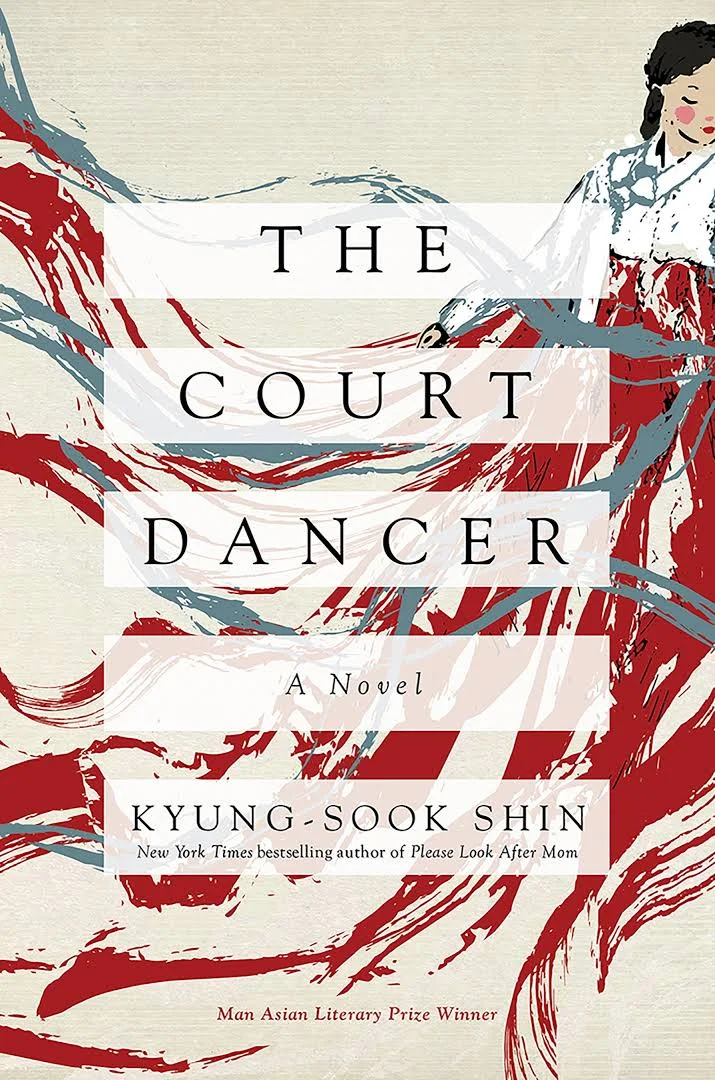Kyung-Sook Shin in NY!





Join Kyung-Sook Shin on 9/25 for a reading at Boston University!
The Court Dancer: A Novel by Kyung Sook Shin Audiobook Excerpt
The Court Dancer- WHAT THE REVIEWERS SAY
RAVE JEAN ZIMMERMAN,
NPR...[an] atmospheric, tragic novel ... Sorrow threads itself through the pages of The Court Dancer, yet there is a richness both to the period and the narrative as beautiful as any silk fan. Kyung-Sook Shin has become one of South Korea's most popular authors, and for good reason. Her deep understanding of the subtleties of the human heart effortlessly crosses borders and informs her portrait of a different place and a faraway time.
READ FULL REVIEW >>
POSITIVETERRY HONG,
BOOKLIST ONLINE...Orphaned but adoringly raised by a royal attendant’s sister, coddled since childhood by the queen, taught French by a missionary-priest, Jin leaves Korea and settles in Paris. Her new life provides unimagined social, literary, even commercial opportunities, but the relentless exotification of her very person emphasizes her growing alienation. Her return home is bittersweet, as she’s treated like a foreigner, but events turn horrific when she’s caught in the violent Japanese takeover of the Joseon court ... The Court Dancer’s latest journey west should command substantial, eager audiences.
READ FULL REVIEW >>
POSITIVENICOLE Y. CHUNG,
THE WASHINGTON POST
Inspired by the true story of a late-19th-century court dancer, Shin’s novel explores themes of exoticism, assimilation and identity ... The novel delves into major historical events, including 1884’s Gapsin Coup and the Imo rebellion in 1882, while the power struggle between China and Japan for influence over Korea looms in the background. By placing Korean history beside a Western narrative, Shin highlights the disparity between Europe and the more isolated Asian nation. At its core, The Court Dancerexamines what countries lose in identity in exchange for technological advancement.
READ FULL REVIEW >>
RAVEKATHERINE MATTHEWS,
ATK MAGAZINE
Yi Jin finds herself at the heart of the diplomatic, aristocratic, and artistic circles of Paris in the Belle Époque, writing her detailed observations of Paris life in unsent letters to Queen Min, embroidering fans to be sold at the Bon Marché department store, and spending time in the company of writer Guy de Maupassant – playing chess, going for walks, and even visiting the Paris morgue (a popular 19th century tourist destination) ... In The Court Dancer, Shin Kyung-sook offers a rich and detailed look at 19th century France and Korea though the eyes of Yi Jin. Jin is a keen observer of everything around her ... Shin’s novel has a power that stems from the idea that, in the whirlwind of grand, worldly events, sometimes, the smallest, most unpredictable things can change the course of a life. The book is a fascinating woven account of Jin’s and Korea’s simultaneous navigation through the final years of the Korean Empire.
READ FULL REVIEW >>
A Writer Evokes Loss on South Korea’s Path to Success
By: Choe Sang-Hun
SEOUL, South Korea
LIKE so many South Korean parents at the time, Shin Kyung-sook’s mother saw education as her daughter’s best chance of escaping poverty and backbreaking work in the rice fields. So in 1978 she took her 15-year-old daughter to Seoul, where Ms. Shin would lie about her age to get a factory job while attending high school at night to pursue her dream of becoming a novelist.
Seoul-bound trains at the time, like the one mother and daughter boarded that night, picked up many young rural South Koreans along the way — part of the migration that fueled South Korea’s industrialization but forever changed its traditional family life.
Read more here.
NYT Review: Kyung-sook Shin’s ‘The Girl Who Wrote Loneliness’
Kyung-sook Shin’s “The Girl Who Wrote Loneliness” begins with an unnamed novelist writing in isolation on Korea’s Jeju Island. She informs us of a recent call from an old friend, someone who has read her work and says, “You don’t write about us. . . . You seem to write quite a lot about your childhood, and also about college, and about love, but there was nothing about us.” Rattled, the novelist looks back on her teenage years. Why indeed hasn’t she written about her classmates and friends from that time?
Read the article here.
NYT Review of Please Look After Mom
A Mother’s Devotion, a Family’s Tearful Regrets
by: Janet Maslin
“Please Look After Mom” is the work of a popular South Korean novelist, Kyung-sook Shin, who is being published in English for the first time. It sold more than a million copies in South Korea, where there may not be a dry hankie left in the land.
Read the article here.
What She Left Behind featured in Vogue India
"To commemorate Vogue India's tenth anniversary, writers interpret through fiction, non-fiction, illustrated essays and poetry the art of dressing and even undressing. Style, fashion, fabric and clothes, merge with nostalgia, economics, love and sex in this collection of short works. From tracing the origins of the humble undershirt, the 'banyan', in India to Frida Kahlo claiming agency through the femininity of Tehuana costuming, or the complex politics of the burka alongside the plight of cotton farmers in times of fast fashion - the anthology stitches together a rich fabric to remind us that a dress is more than just a dress. Bringing together some of the finest voices of our generation, from both India and elsewhere, this is a must have collector's edition."
Nineteen Questions with Kyung-sook Shin
Interviewed by PP Wong for NineteenQuestions.com. You can read the interview here.
The Court Dancer is on the list!
Huffington Post lists 60 books to read in 2018 and The Court Dancer made the list.
You can check out the rest of the list here






